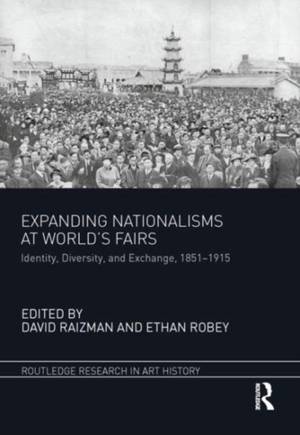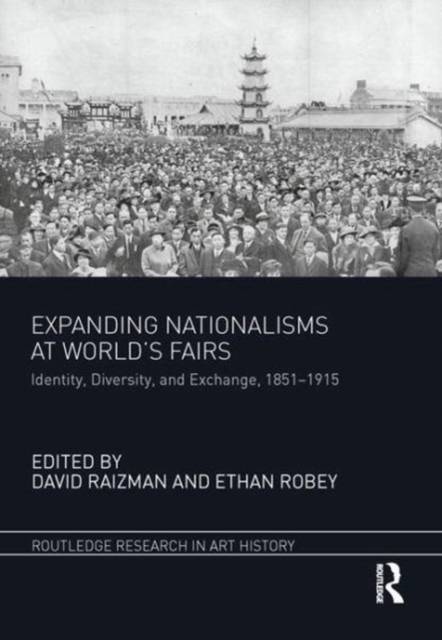
- Retrait gratuit dans votre magasin Club
- 7.000.000 titres dans notre catalogue
- Payer en toute sécurité
- Toujours un magasin près de chez vous
- Retrait gratuit dans votre magasin Club
- 7.000.000 titres dans notre catalogue
- Payer en toute sécurité
- Toujours un magasin près de chez vous
Expanding Nationalisms at World's Fairs
Identity, Diversity, and Exchange, 1851-1915
Description
Expanding Nationalisms at World's Fairs: Identity, Diversity, and Exchange, 1851-1915 introduces the subject of international exhibitions to art and design historians and a wider audience as a resource for understanding the broad and varied political meanings of design during a period of rapid industrialization, developing nationalism, imperialism, expanding trade and the emergence of a consumer society. Its chapters, written by both established and emerging scholars, are global in scope, and demonstrate specific networks of communication and exchange among designers, manufacturers, markets and nations on the modern world stage from the second half of the nineteenth century into the beginning of the twentieth.
Within the overarching theme of nationalism and internationalism as revealed at world's fairs, the book's essays will engage a more complex understanding of ideas of competition and community in an age of emergent industrial capitalism, and will investigate the nuances, contradictions and marginalized voices that lie beneath the surface of unity, progress, and global expansion.
Spécifications
Parties prenantes
- Editeur:
Contenu
- Nombre de pages :
- 246
- Langue:
- Anglais
- Collection :
Caractéristiques
- EAN:
- 9781138501751
- Date de parution :
- 30-10-17
- Format:
- Livre relié
- Format numérique:
- Genaaid
- Dimensions :
- 175 mm x 249 mm
- Poids :
- 703 g






